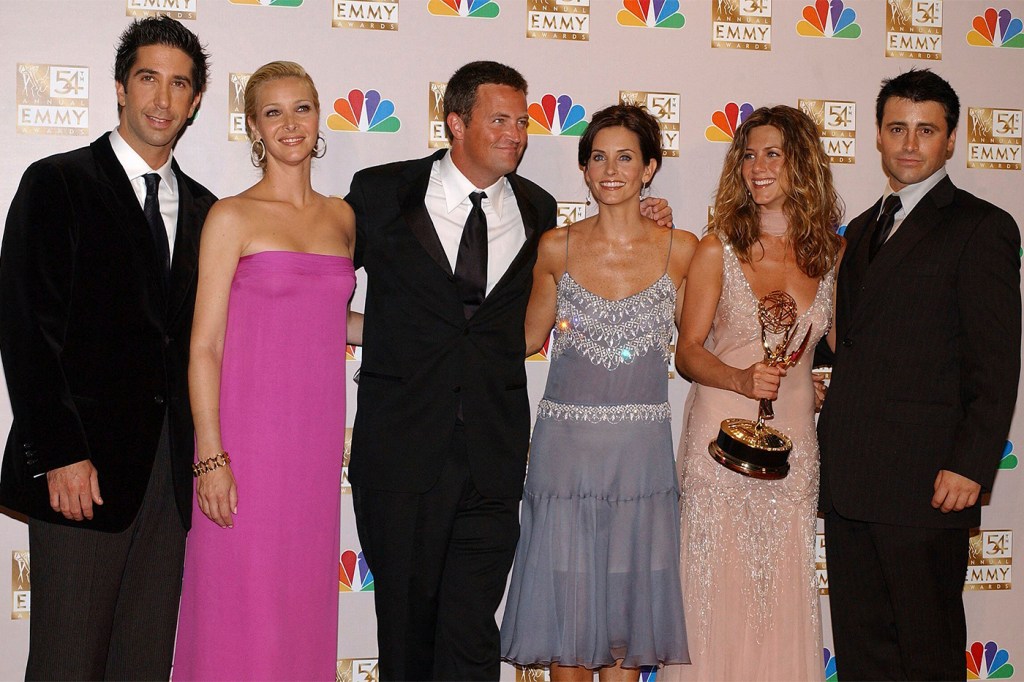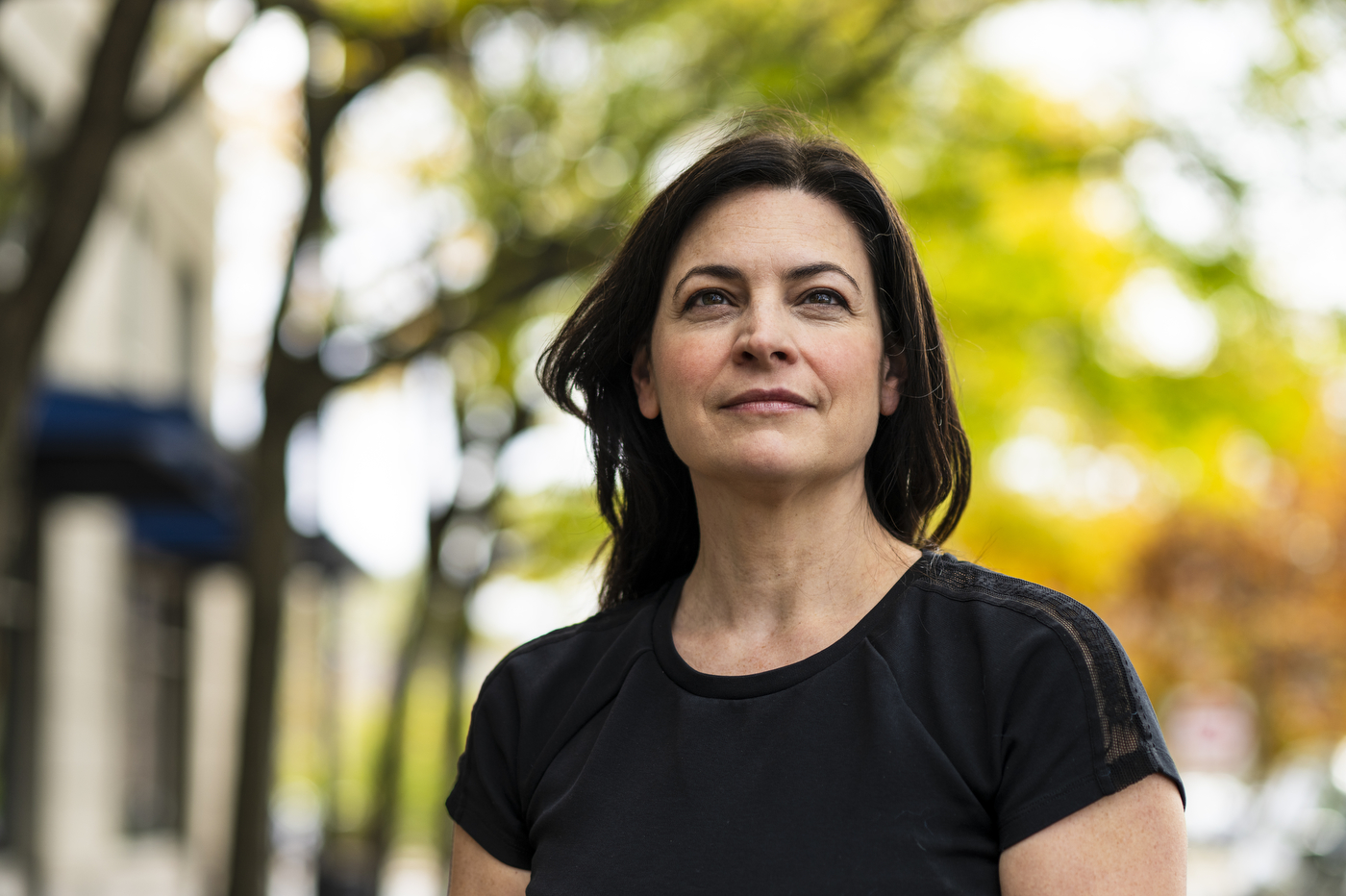‘Friends’ castmates grieving Matthew Perry’s death. How do you cope with losing a friend? Expert offers insight

Conversations around death and dying often focus on losing family members. But the reaction to the recent death of “Friends” actor Matthew Perry illustrates the grief that comes with losing a friend — or even just a celebrity who felt like one. Many times, this loss can be equivalent or even greater than losing a family member.
Perry’s “Friends” cast mates (and close friends) released a joint statement two days after his Oct. 28 death, declaring themselves “more than just cast mates. “We are a family,” their statement read. “There is so much to say, but right now we’re going to take a moment to grieve and process this unfathomable loss.”
How can you process a loss of a close friend like this? Northeastern University associate professor of applied psychology Christie Rizzo offered tips for managing this type of grieving process. Rizzo’s comments have been edited for clarity and brevity.

How can losing someone who is a close friend differ from losing a relative?
One of the things that can be unique with (losing) a close friend is oftentimes it brings to light our own mortality. Typically a close friend is somebody who’s similar in age. It makes us all think about our own vulnerability and that can be pretty upsetting in and of itself.
The other thing is that we all have different levels of closeness with different people in our lives. Your best friend might be somebody you’re closer with than a sibling. It’s important not to judge grief based on the label of the person that they’re grieving. We sometimes underestimate the impact and that impact can be just as significant as the loss of a family member.
Matthew Perry was part of this show that was crucial to a lot of people. Can people feel grief over losing someone who was a public figure who they didn’t know but they felt like they knew?
In some ways, definitely. Some folks are more apt to feel those connections to public figures than others. If you think about seeing this person on television every Thursday for years, that person does become part of your life. Even though it is a character and you don’t necessarily know the celebrity behind the character, you know that there is a presence of that person in your life. You absolutely can feel that loss because there is something predictable about having some of these people on the television.
What are some ways to cope after losing someone who isn’t a relative — whether it be a close friend or a public figure?
This is where social support becomes so important. There are other people out there that feel the same way. The great thing about technology is it brings together people who are like-minded. We’re seeing that all over social media. Seeking out those people and talking about it is a great way to kind of get that social support and not feel isolated. There are plenty of people out there together who want to talk about it.
Anytime we’re feeling sadness, we’re feeling depressed, (we should be) taking care of ourselves. Getting sleep and exercise can be really helpful in lifting our mood. Try to get outside, take a walk, and not drift into that depressed state.
The other thing to remember is that most people will transition out of grief naturally, but there are a small number of people for whom it can transition into more of a clinical depression. We want to keep an eye out for time not making things better, because with grief, time generally does make things better.
Often we receive an outpouring of support after a loss and then people forget about it and move on. What are some things to keep in mind about the longevity of grief?
Grief is something that comes and goes in waves. As time goes on, you will have moments where grief is triggered. This happens for all types of losses. When those (feelings) hit you again, the impact of it emotionally tends to be not as intense and your ability to recover from it gets quicker and quicker.
When you lose somebody that’s close to you, you may spend your whole life having moments that feel sad. I think we sometimes pathologize sadness. We want to get out of sadness as quickly as possible, but that’s a normal emotional state and it’s OK to feel sad. When you lose somebody that’s close to you, you’re going to have waves of sadness potentially for the rest of your life. That’s just a statement about how much they meant to you and it’s OK. We move through it quickly.
The “Friends” cast issued a joint statement as the five remaining members. What can we learn from that about the value of leaning on friends during a time of grief, especially if you lost a friend who was part of a close-knit friend group?
It can be incredibly important. It comes back to the rituals that we associate with grief. When somebody passes, there might be a funeral. There might be a time that everybody gathers around, and comes and tells stories and talks about the person.
In (the case of the “Friends” cast), for them to come together and process things together (to at least) put out a joint statement, is a great way to have that process of sitting with the memories and feeling that discomfort.
Oftentimes in those conversations with friends where you have the shared loss, there’s also those funny moments, those great memories. It’s such an important part of grief, being able to reflect on the happy times, the happy memories with that person, not just be so stuck in the details surrounding their death, which tend to be what we think about a lot in the immediate days.
As time goes on and we connect with those friends, you can spend more time thinking about just the positive memories of that person and less about the details surrounding the day of their death.
Erin Kayata is a Northeastern Global News reporter. Email her at e.kayata@northeastern.edu. Follow her on X/Twitter @erin_kayata.







